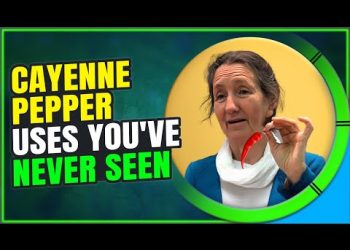If You’re Struggling with a Cold
Are you constantly battling colds and the flu? This post will delve into the reasons behind frequent colds, the symptoms, and most importantly, natural solutions to alleviate them right at home. Gain valuable insights from Dr. CARiD, a family doctor based in London.
Understanding the Cold
A cold is a common viral infection affecting the upper respiratory airways, including the nose, mouth, throat, sinus, and ears. Typically, it takes about two days for symptoms to show after infection. It’s predominantly caused by the rhinovirus, derived from the Greek word “Rhino,” meaning nose, affecting the nasal region.
Why There’s No Vaccine
The multitude of different virus variations and their rapid mutations mean there’s currently no vaccine for colds. This makes prevention through lifestyle choices even more essential.
Factors for Frequent Colds
Several factors could be contributing to frequent colds, with diet being a primary consideration. A diet rich in fruits and vegetables provides necessary nutrients and minerals crucial for immune cell production. Limiting processed foods and sugar, alongside ensuring adequate vitamins like Vitamin D, B12, Zinc, and Vitamin C can bolster the immune system.
Impact of Stress on Immunity
Stress compromises immunity, making one more susceptible to infections like colds and flu. Stress hormones may suppress the immune system, but managing stress effectively can enhance immunity.
The Importance of Sleep
Lack of sleep not only predisposes individuals to viral infections but also risks more severe health issues like heart disease and strokes. Ensuring eight hours of sleep a night is critical for maintaining a strong immune system.
Practicing Good Hygiene
Good hand hygiene is one of the most effective preventive measures against colds. Regular washing of hands with warm water and soap, especially after being in public places, can minimize the risk of picking up viruses from surfaces.
The Duration of a Cold
Colds generally last about one to two weeks, with adults averaging two to four colds per year, while children experience much more. It’s vital to see a doctor if symptoms worsen after five days or persist beyond three weeks.
Managing Symptoms Naturally
Unfortunately, there is no magical cure for a cold. The fundamentals of rest and hydration remain the most effective remedies. Simple remedies like gargling warm salt water, enjoying warm soups, and avoiding hot beverages can significantly soothe symptoms.
Medications for Symptom Relief
While no medication can cure a cold, over-the-counter medications like paracetamol or ibuprofen can alleviate symptoms such as high temperature and muscle aches. Be cautious of medications claiming instant relief as they often offer minimal difference while being heavily marketed and overpriced.”











